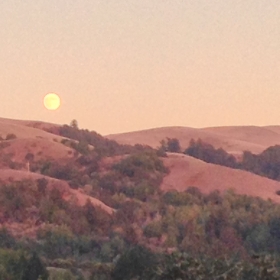Willard Gordon Wyman
Nov. 12, 1930-Feb. 25, 2014
La Honda, California
Willard G. (Bill) Wyman, a long-term resident of La Honda and a friend to many in the Stanford and Palo Alto community, died peacefully on Feb. 25 at Stanford Hospital. He was 83 years old. His death was caused by lung cancer. Born in China as the son of a career officer in the United States Army, Bill grew up on a series of cavalry posts in Virginia, Kansas, Texas, Washington state, and the nation?s capital. He attended St. Paul?s in Baltimore, Md. where he was a star athlete and lacrosse player. After his own schooling was completed, he began his career as an educator on the Peninsula in 1958, where he taught English and was head football and swimming coach at Menlo School. In 1962, he enrolled as a graduate student at Stanford, receiving his doctoral degree in 1969 while, at the same time, serving as Associate Dean of Students and, later, as Special Assistant to then President Richard W. Lyman in the academic year 1969-70. His special gifts as a calm negotiator during the years of protest about the war in Vietnam earned him the respect of both student activists and his academic and administrative colleagues. From 1971 to 1975, he was dean of students and associate professor of English at his alma mater, Colby College in Maine. In 1975, he returned to California to become headmaster of The Thacher School in Ojai and served with success there until his retirement in 1992. Under his leadership, the school opened its doors to women, saw its camping and horse programs invigorated, its precarious fiscal situation reversed, its endowment increased twenty-fold to $20 million, its campus strengthened by a constellation of new buildings and its academic stature returned to a national prominence it had not enjoyed since its early years. During these years, he began taking groups of students, alumni, friends of the university and personal friends on eclectic, weeklong pack trips into the High Sierra ? trips for which he would become a legend. In the mid-nineties, moving to his new home, a handsome ranch house on the Skyline Ridge with spectacular views of the Pacific Ocean, Bill started a new career, one he had perhaps envisioned during all the years of his youth ? that of a novelist. He returned in memory to the summer he had spent as a teenager, on a ranch owned by his sister Patty and her husband in the Rosebud Mountains of Montana. There he had learned about horses and cattle, about packing, about the joys of reading by lantern light, and from the native people a different way of seeing the land. His sister, who predeceased him, also taught him about music, and his memory of her and of music she loved echoed through his life. That early time in Montana never left him. It was with him when, at 17, he enlisted in the Marine Corps and was appointed as a cadet in the United States Military Academy at West Point, completing one year there and lettering in three sports, playing football briefly for backfield coach Vince Lombardi. Nor did it leave him when he entered Colby College in 1952 where, as he later wrote, he "found, in an academic community, a place where my love of literature could take root and where I could realize the possibilities for thought and decency and understanding." In 2005, he became the writer he had wanted to be. His first novel, "High Country", was published and earned two Spur Awards from the Western Writers of America, for Best First Novel and Best Novel of the West. In 2011, his second novel, "Blue Heaven", appeared and in it he returned to the lives of two strongly imagined characters, Ty Hardin and Fenton Pardee - one young, the other old, who, in both books, experience the dangers and the splendors of an American wilderness that, as they live and age, is changing all around them. In many ways these stories were Bill?s story. He is survived by his two sons, Willard G. Wyman III of Santa Barbara, and his wife Michelle and their three children (Caitlin, Casey and Molly) and Jedediah Fowler Wyman of Corvallis, Ore.; and by Barbara Saxon, his partner for many years. Near death, Bill said, "You know, I?ve had an interesting life. Most of it, good. And ? I helped a lot of young people." In the end, that is his legacy, that was what mattered to him ? the people whose lives he had touched. They were legion.
Tags: veteran, teacher/educator








